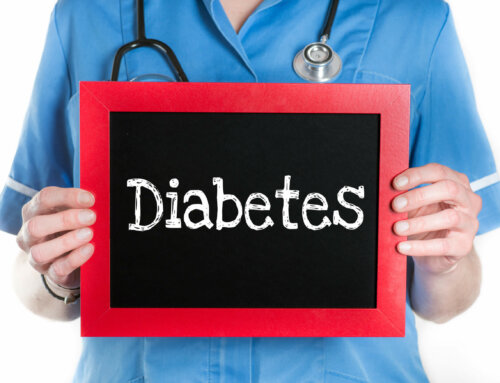It is important for people with diabetes to avoid getting the flu and colds. Diabetes makes it harder to fight off these common ailments, which adds stress to your body and makes it more difficult to control blood sugar levels. Discover ways to fend off the flu and colds with diabetes.
- When you have diabetes, you are at a higher risk of complications from the flu or a cold. Your blood sugar levels can fluctuate, leading to more serious health conditions. While flu vaccines do not provide complete protection against the flu, it makes it much more difficult to contract. Make sure to get a flu shot every fall season. You do not get the flu from the flu vaccine since the vaccine contains only dead flu virus. {It takes two weeks for the flu shot to activate and you may still get the flu during that time frame.} People with diabetes should schedule a flu vaccine in September.
- Adults with diabetes should get a pneumonia vaccine at age 65 unless they have a history of respiratory illnesses earlier in life. Some guidelines call for revaccination every 6 years over the age of 65, so check with your own physician who will help you make the final decision.
- Try to stay away from people with colds and flu. If they are coughing, sneezing and have runny noses, it’s time to avoid these people until they are symptom free. Encourage your family members, friends and co-workers to get the flu vaccine which will also help protect you; you are less likely to catch a cold or flu if the people around you don’t have it.
- Wash your hands frequently to keep them clean. Thorough hand-washing is essential to get rid of germs on your hands that could land in your nose, eyes or mouth and make you sick. Use a gentle soap with warm water to wash your hands at certain times during the day, such as after using the restroom, using a common computer key board or phone, touching a doorknob and before eating. Use a 99% alcohol based gel hand sanitizer if you are not near a sink.
- Keep your blood sugar under control to help your body fight off the infections associated with colds and flu. Maintaining proper blood sugar levels on healthy days can help you have fewer sick days. If you do catch a cold or flu, your body will be able to heal more quickly. Have plenty of diabetes supplies on-hand to check your blood sugars more frequently when ill. If your glucose levels go over 240 mg/dL, check for urine ketones and call your health care provider.
- Maintain a healthy diet and exercise routine to keep your body strong. Eat nutrient-rich foods that give your immune system a boost and help you ward off colds and flu. Choose from lean meats and fish, fruits and vegetables, whole grains and low-fat dairy. Drink plenty of water to stay hydrated. Try to minimize your intake of caffeinated beverages and alcohol. Reduce the salt, fat and sugar in your daily diet. A healthier body is better able to combat infections. Eat foods that are rich in antioxidants such as blueberries, cranberries, red kidney beans and artichokes. Talk to your physician about vitamins and supplements.
- If you do experience cold or flu symptoms, be cautious about taking OTC medications since many of them contain sugar and/or alcohol. Aspirin may lower your blood sugar levels while decongestants may raise them. Antibiotics may decrease your blood sugar levels. Before you take any medication, talk to your doctor about blood sugar control and possible contraindications.
- Discuss a sick-day plan with your doctor so you are well-prepared if you do get a cold or flu. Your sick-day plan should include easy-to-eat foods, liquids and a schedule of blood sugar checks.
Taking a few simple steps can help you ward off the misery of suffering with a cold or flu. Maintaining good health and stable blood sugar levels throughout the year can make a big difference. Take care of yourself every day and get a flu vaccine to avoid the sicknesses many people get in the winter.







Leave A Comment